You are here: Home / Sleep / Guide / How To Fall Asleep When You’re Not Tired: 17 Useful Method
As an Amazon Associate we earn from qualifying purchases.
Last Updated on August 20, 2021 by Terry Cralle
Sleep disorders and difficulties are getting more and more common in the modern-day and age. We are getting used to working more and sleeping less, which is a terrible trend to follow. Now, sleep disorders can range from complete inability to sleep, having disrupted sleep, to waking up too early. Another arising issue is not being able to fall asleep because you’re body and brain aren’t tired.
For you to fall asleep, the brain needs to recognize some signals and cues, like that it is night, that your body temperature is lowering, and that you’re physically calmed down. However, the brain ignores these signals, doesn’t produce melatonin and you end up lying awake for hours. That is why in the following paragraphs we’ll present some tips and tricks that will help you fall asleep even when your body and brain aren’t cooperating.
It is definitely easier to fall asleep when your brain and body are tired. However, when you’re body isn’t tired at all, sleeping can be a real struggle. Here are some of the ways you can lower brain alertness and wakefulness and finally get some good night’s sleep;
 Studies have shown that sleep onset is much faster after you’ve taken a warm bath. By doing this, you’re helping the body calm down completely, lower your heartbeat, and slow your breathing. So, even though you’re not necessarily tired, it will lull you to sleep. You will feel more cozy, comfortable, and at ease.
Studies have shown that sleep onset is much faster after you’ve taken a warm bath. By doing this, you’re helping the body calm down completely, lower your heartbeat, and slow your breathing. So, even though you’re not necessarily tired, it will lull you to sleep. You will feel more cozy, comfortable, and at ease. Cool temperatures make the body cool as well, which induces sleep and makes the sleep onset occur much faster. Cooler temperatures also promote melatonin and adenosine production, both essential for falling asleep.
Cool temperatures make the body cool as well, which induces sleep and makes the sleep onset occur much faster. Cooler temperatures also promote melatonin and adenosine production, both essential for falling asleep.Also Read:
 Cold Showers: The Benefits of Both Kinds of Showers
Cold Showers: The Benefits of Both Kinds of ShowersGo to top
 All of this food is rich in magnesium, vitamins, and amino acids like tryptophan, which is known to be able to convert into melatonin and serotonin.
All of this food is rich in magnesium, vitamins, and amino acids like tryptophan, which is known to be able to convert into melatonin and serotonin.Go to top
 You’re aware that you’re not tired or sleepy, and you immediately proceed to worry and overthink. Now, that is the wrong approach. Instead, try to ignore the stressors and don’t think about falling asleep at all. Accept the fact that it might take you some time to fall asleep and try to lull yourself by thinking of something relaxing, meditating, and calming.
You’re aware that you’re not tired or sleepy, and you immediately proceed to worry and overthink. Now, that is the wrong approach. Instead, try to ignore the stressors and don’t think about falling asleep at all. Accept the fact that it might take you some time to fall asleep and try to lull yourself by thinking of something relaxing, meditating, and calming.
 This will increase your adrenaline levels and make you awake and alert. Not to mention that it will take you even longer to fall asleep, or you might not fall asleep at all.
This will increase your adrenaline levels and make you awake and alert. Not to mention that it will take you even longer to fall asleep, or you might not fall asleep at all.It is important to bear in mind that sleep strategies don’t often work the very first time. Because your body and brain don’t feel tired, you will need to try the methods over and over again, until they start tiring your body out.
So, don’t get discouraged if you don’t fall asleep tonight right away. Instead, use your inability to fall asleep as an opportunity to try out some of the methods and see which ones are actually helpful.
There are numerous things you can do, and if none of them work, then make sure to discuss the issue with your doctor or medical professional.
You May Also Like: 9 Fastest Ways to Force Yourself to Sleep (More breathing method )
Sharing is caring!
It often seems there are only two ways to wake up from a nap: intensely energized and ready to take on the world or so groggy you wonder if you're in the same decade. And many people, despite facing a serious afternoon slump, fight the urge to nap because they know it'll make them feel worse.
And many people, despite facing a serious afternoon slump, fight the urge to nap because they know it'll make them feel worse.
Fortunately, you can have your nap and still take on the rest of your day like a champ. Experts have offered ways to ensure you get your well-needed rest and actually wake up feeling re-energized. Below, learn why you feel worse after a nap, how to beat that awful post-nap grogginess and when you should consider skipping the nap.
That familiar groggy feeling is called "sleep inertia," and it means that your brain wants to keep sleeping and complete a full sleep cycle. Sleep inertia results from waking abruptly out of deep sleep or slow wave sleep, which is the kind of sleep you start to fall into approximately 30 minutes into snoozing.
This is why experts recommend keeping naps to just 10 to 20 minutes, among other nap best practices. It's all about the sleep stages, which go as follows:
NREM Stage 1 lasts five to 10 minutes; NREM Stage 2 lasts 10 to 20 minutes; and then NREM Stage 3 sets in. During NREM Stage 3 sleep, your muscles relax more, your blood pressure and breathing rate decrease, and slow brain waves begin to emerge.
During NREM Stage 3 sleep, your muscles relax more, your blood pressure and breathing rate decrease, and slow brain waves begin to emerge.
Pulling yourself out of this very deep sleep results in the characteristic grogginess and impaired performance of sleep inertia, which can last anywhere from mere minutes to hours.
Crankiness, or any form of a bad mood after a nap, isn't so much an aftereffect of its own, but another side effect of sleep inertia. No one enjoys being snatched out of a good snooze, and the loud beeps from an alarm interrupting deep sleep is enough to ruin anyone's mood.
If you try to avoid naps at all costs because you seem to always wake up confused or angry at the whole world, you should know that you can avoid those unpleasant aftereffects. Here are four tips for waking up from all naps feeling refreshed, not drained:
A good nap is all about timing.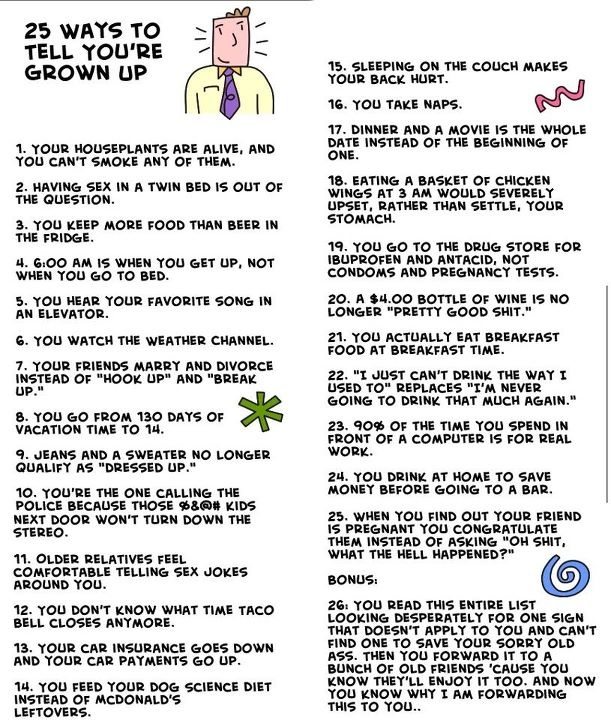 Dr. Dawn Dore-Stites, an assistant professor in the Department of Pediatrics and Sleep Disorder Center at Michigan Medicine and Reverie sleep advisory board member, told CNET that the longer the nap, the more problems it typically creates.
Dr. Dawn Dore-Stites, an assistant professor in the Department of Pediatrics and Sleep Disorder Center at Michigan Medicine and Reverie sleep advisory board member, told CNET that the longer the nap, the more problems it typically creates.
"The longer you sleep, the higher the chance you get into deeper stages of sleep," Dore-Stites says. "Waking from those stages can lead to the grogginess and irritability. Limiting naps to 20 minutes is key. You will often wake up feeling more refreshed."
The exception is if you have enough time to nap for an entire sleep cycle, which lasts approximately 90 to 120 minutes. However, unless you're super in-tune with your sleep cycle and can pinpoint the exact time you need to wake up, you're better waking up before you ever reach deep sleep.
Additionally, you should try to nap as early in the afternoon as possible. Napping close to your bedtime can confuse your body and make you feel groggy for the remainder of the evening, especially if daylight is already waning when you wake up from your nap.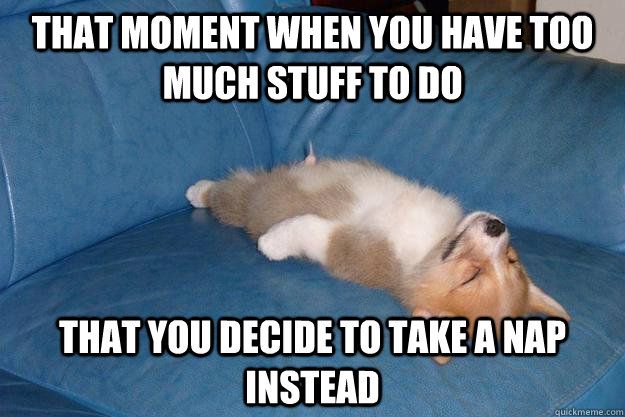
It can be super tempting to hit snooze or spend a few minutes scrolling on your cell phone, but fight the urge. Remaining in bed in that sort of half-asleep, super drowsy state can make post-nap grogginess more intense or extend for a longer period of time.
And when you do get out of bed, expose yourself to natural daylight by opening curtains or blinds to make sure your body knows it isn't bedtime and there are still things to be done.
If natural daylight isn't enough to spark your system, try one of these tactics for a stronger wake-up call:
Research shows that washing your face and getting some sunlight can combat post-nap grogginess, as can listening to music.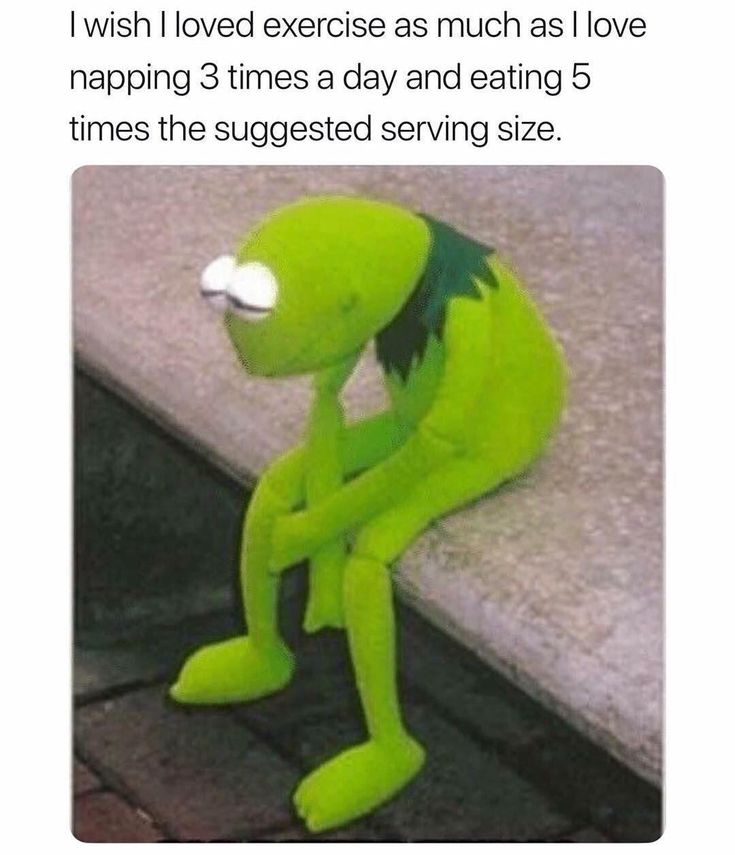 Light exercise, such as stretching and walking, as well as intense workouts can boost energy and mood, which can fend off afternoon slumps.
Light exercise, such as stretching and walking, as well as intense workouts can boost energy and mood, which can fend off afternoon slumps.
Yep, that's a thing. A "coffee nap" refers to guzzling some caffeine right before your nap. If everything works out, you'll wake up feeling extra refreshed and energized because the effects of caffeine peak around 30-60 minutes after consumption, which is shortly after you should wake up from a nap.
If you drink coffee too long before you plan to nap, however, you risk losing your opportunity for a nap if the caffeine sets in and keeps you awake. So like tip number one, coffee naps come down to the timing.
Dore-Stites says that napping isn't always the answer, even if you feel like you can't keep your eyes open in the afternoon.
If you are actually sleep-deprived at night, a short nap may help you sustain your energy through the day, Dore-Stites says. But on the other hand, taking naps when you aren't sleep-deprived can affect your ability to fall asleep, leading to shorter sleep duration at night.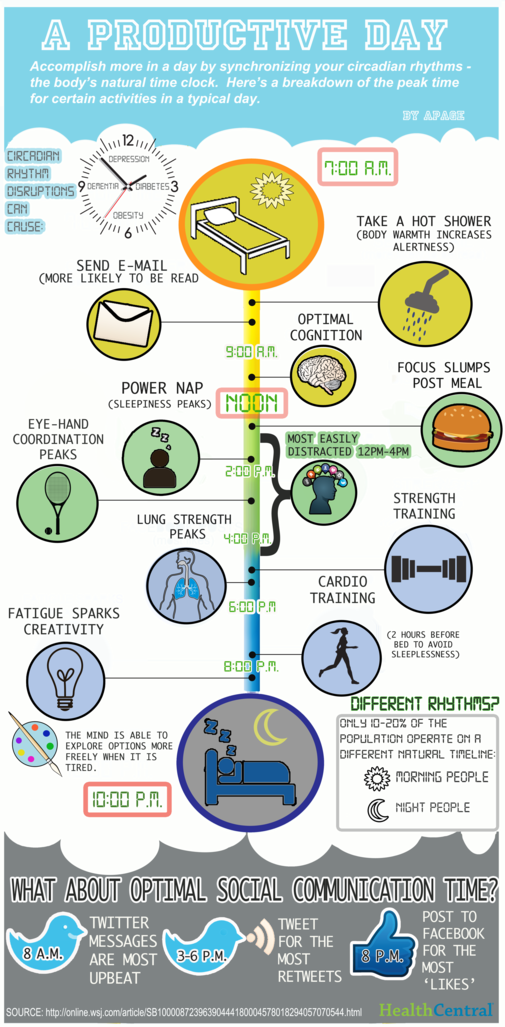
"Overall, it is better to have one good long period of sleep at night than sleeping in 'pockets' through the day and night," Dore-Stites told CNET. "Such sleep patterns often lead to more feelings of fatigue and low energy."
If you have insomnia or you struggle to fall asleep and stay asleep most nights, you may want to avoid naps for the most part. If you generally sleep well at night, Dore-Stites says it's best to only nap when you really need it, or you might end up in a vicious cycle of unusual sleep cycles and sleep inertia, and thus the grogginess you're trying to avoid.
The information contained in this article is for educational and informational purposes only and is not intended as health or medical advice. Always consult a physician or other qualified health provider regarding any questions you may have about a medical condition or health objectives.
104,775
Anti-Stress Practices How toKnow Yourself
Here are a few tips to help mitigate the damage from sleep deprivation.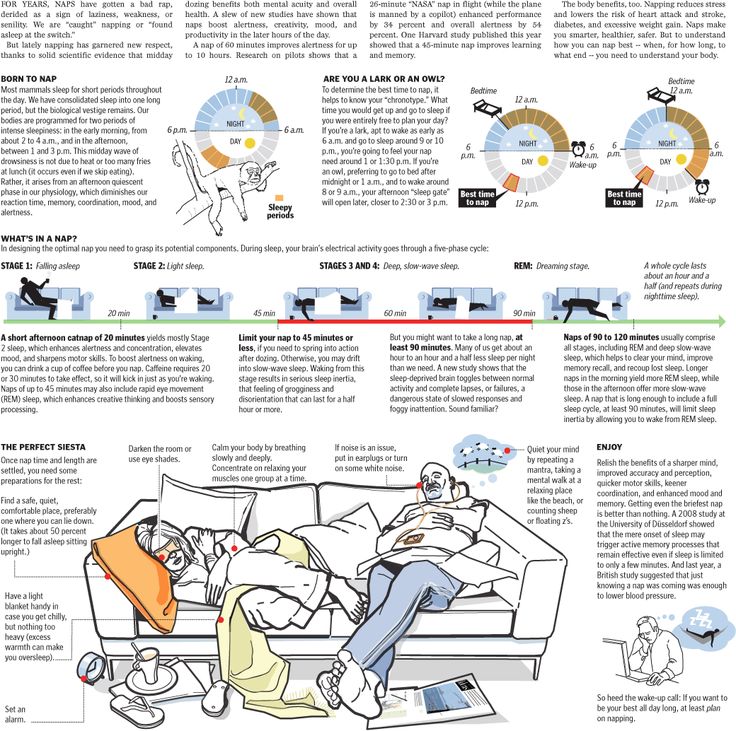 It is most important to get enough sleep the next night so that sleep deprivation remains the exception rather than becoming a regular occurrence.
It is most important to get enough sleep the next night so that sleep deprivation remains the exception rather than becoming a regular occurrence.
Lack of sleep interferes with normal hunger. Without sleep, we often feel hungry all day, and if we start to abuse fast food and other unhealthy foods, it will be difficult to stop. Stay away from sweets and hamburgers and start your day with a healthy breakfast. “Foods rich in protein will give you energy for the whole day,” advises nutritionist Megan Faletra. nine0003
When you feel sleepy, don't sit in a dark room. “Bright light can wake you up and make you feel better,” explains Dr. Katie Goldstein of the Michigan Sleep Disorders Center. If the weather is sunny, take a walk outside and turn on as many lights as possible at home or in the office.
“Of course, when we don't get enough sleep, we want to think about exercise last.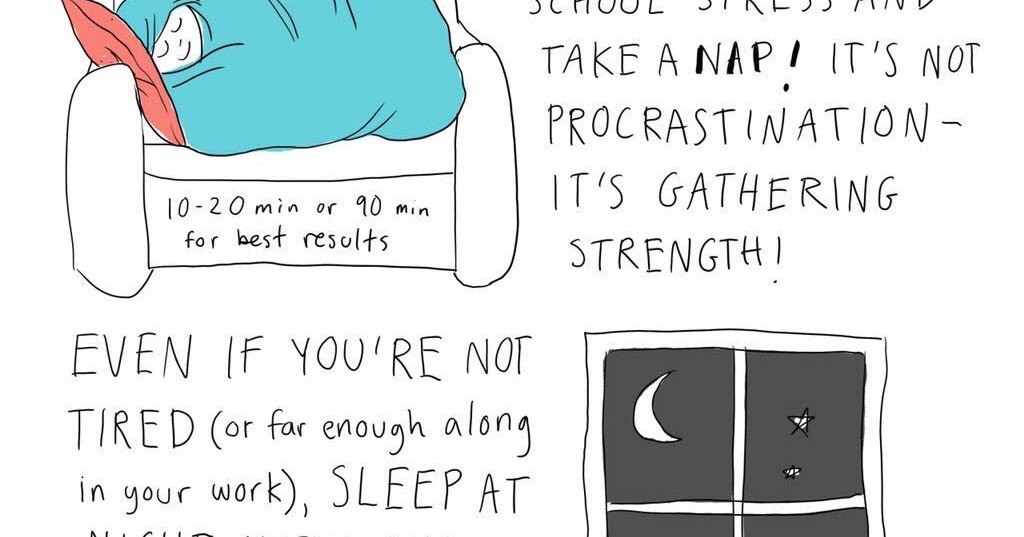 But even a few simple exercises will help you cheer up, ”says clinical psychologist Courtney Bancroft, a specialist in the treatment of insomnia and sleep disorders. However, do not overdo it: fitness trainers do not recommend resorting to training if you did not manage to get enough sleep. Limit charging. nine0003
But even a few simple exercises will help you cheer up, ”says clinical psychologist Courtney Bancroft, a specialist in the treatment of insomnia and sleep disorders. However, do not overdo it: fitness trainers do not recommend resorting to training if you did not manage to get enough sleep. Limit charging. nine0003
“Breathing exercises are just as energizing as exercise,” adds Courtney Bancroth. Here are a couple of simple options:
Do not stay warm all the time, this will make you want to sleep even more. Bancroft recommends taking a cold shower, turning on the air conditioner, or running your hands under cold water from time to time.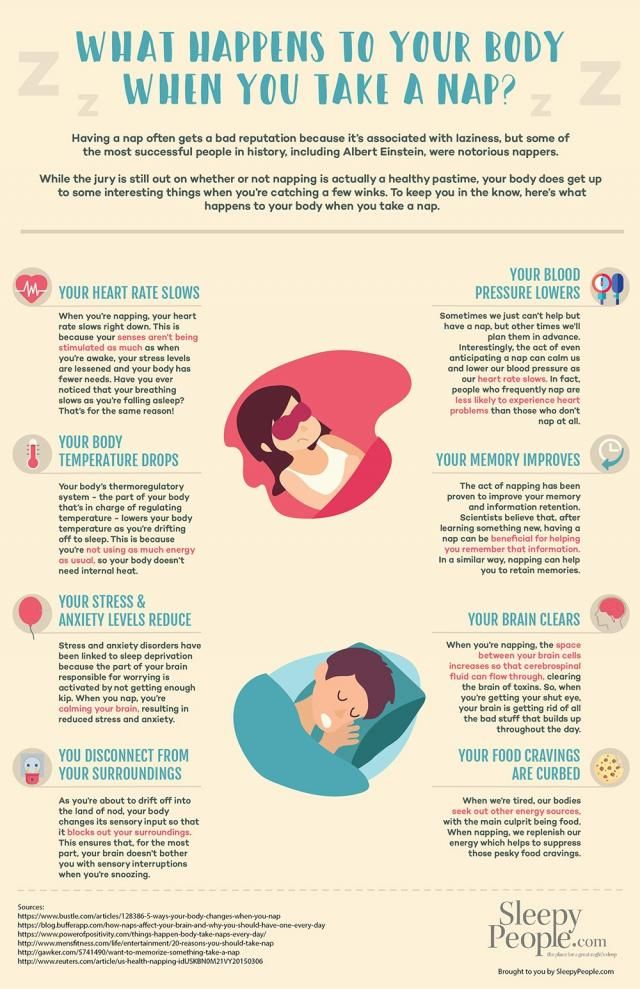
"After a sleepless night, try not to sleep at all during the day, then it will be easier for you to fall asleep the next night," Bancroft advises. If the urge to take a nap becomes irresistible, you can lie down for a while - but no more than 45 minutes. nine0003
It is advisable to do this no later than two or three in the afternoon to give the body an opportunity to restore normal circadian rhythms (biological clock). Otherwise, there is a risk that you will toss and turn in bed the next night, trying to sleep.
Stay hydrated or you will feel even more tired. Nutritionist Megan Faletra recommends drinking 2-3 liters of water during the day after a sleepless night.
Drowsiness affects productivity, and you may be tempted to sit at work longer to get everything done. Remember that the bright light coming from the screens of electronic devices prevents our body from getting ready for sleep. “Do not use gadgets for two hours before bedtime,” says Dr. Katie Goldstein.
Coffee has an invigorating effect by blocking the action of adenosine, a neurotransmitter released when the brain senses a lack of sleep. Try not to drink coffee after 2 p.m. so that you don’t disturb your sleep the next night and fall into a vicious cycle. nine0003
Text: Nikolay Protsenko Photo source: Getty Images
New on the site
The second half of life: how to fill it with meaning and happiness - advice from psychologists
“Sister-in-law is not worthy of my son”
Marilyn Monroe and borderline personality disorder. What do we know about the "star" diagnosis
Improve new skills and become a good specialist: how "tables" are useful in work and life
8 healthy winter breakfasts for a good mood - cook at home
“I look at life either through rose-colored glasses or through black ones”
“How can I keep a relationship if I have an anxious type of attachment?”
Are you moving because of stress or are you stressed because of moving? Scientists gave the answer
If the question: "Are you getting enough sleep?" If you answer: “Where?”, then here are some tips on how to organize a good night's rest and make up for chronic sleep deprivation. Agree, it is impossible to effectively cope with work when the strength is at the limit and there is only one thought: to sleep. The good news is that you can learn how to get enough sleep and overcome fatigue! We tell you how. nine0076
Agree, it is impossible to effectively cope with work when the strength is at the limit and there is only one thought: to sleep. The good news is that you can learn how to get enough sleep and overcome fatigue! We tell you how. nine0076
If someone suddenly forgot, we remind you that healthy sleep is the key to the successful functioning of the whole organism, including the fruitful work of the brain. A few good habits will add vigor and improve well-being. Isn't this what teachers, parents, and schoolchildren need so much? And to everyone who lives in this world.
Organize the right place to sleep
The bedroom is the basis of rest, so it should be free from everything that can interfere with a restful and healthy sleep. Maintain order and get rid of unnecessary things and garbage. nine0003
Monitor temperature. Ideal for the bedroom - 18-22 degrees Celsius.
Get as dark as possible. Turn off all electronic devices before going to bed.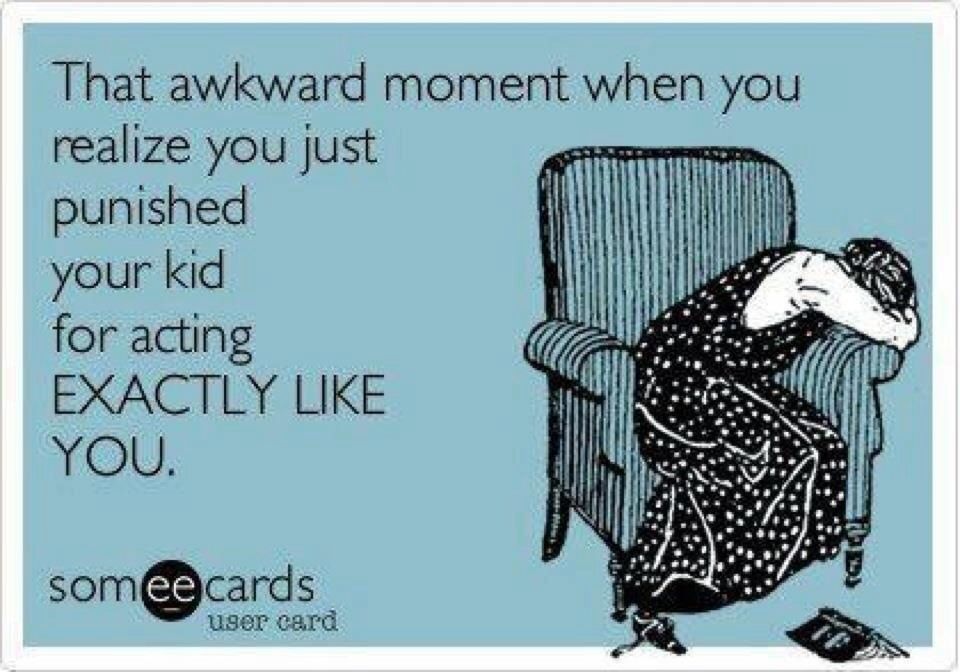 You can use special sleep masks, for greater effect, you can put a couple of drops of lavender essential oil on your wrists, pillowcase or pajamas.
You can use special sleep masks, for greater effect, you can put a couple of drops of lavender essential oil on your wrists, pillowcase or pajamas.
Don't skimp on a comfortable bed and mattress. Buy bedding made from lightweight, breathable fabrics and wash it at least every two weeks.
Don't skimp on sleep
The best way to prevent excessive fatigue and lack of sleep is to get seven to nine hours of sleep a day. We already foresee sad comments: “But notebooks won’t check themselves!”. They will not check, you are right, but your health is the most important thing that you have, and at the same time your loved ones and, by the way, students.
Keep in mind that it takes between ten and thirty minutes for a person to fall asleep, so set aside at least eight hours of your time for proper rest. nine0003
Review your diet
Include foods rich in minerals and vitamins in your diet: carrots, mushrooms, tomatoes, seafood. Some foods will need to be reduced, especially a few hours before bedtime: avoid high-fat foods, avoid coffee and alcoholic beverages.
A balanced diet with enough protein and complex carbohydrates will not only improve sleep, but also give energy to the body throughout the day. And remember about water - you need to drink at least two liters a day! nine0003
Learn to fall asleep faster
Count how many hours of precious sleep you lose while lying in bed with a smartphone in your hands. Here are some tips to help you fall asleep faster:
This will make it easier for the body to prepare for sleep, as well as help to maintain sleep and wakefulness.
Think about what brings you pleasure, makes you calm and relaxed? A warm bath, a good book, art, yoga, meditation will all lift your spirits and make you feel better. Introduce such leisure into your evening, create your own ritual, and this will help you go to bed in a more calm and relaxed state.
Don't sleep too much
We all understand that lack of sleep leads to fatigue and irritability. But did you know that sleep can be too much?
An adult needs between seven and nine hours of sleep, and if you sleep more than nine hours, this may indicate some health problems.
Too much sleep increases the risk of diabetes, obesity, headaches and even depression.
To understand how much time you need to sleep, try organizing yourself a “sleep vacation” (remote work, which some organizations are now switching to, helps us): go to bed at the same time, but get up on your own without an alarm clock. nine0003
After a couple of days, the regime will return to normal, and you will be able to understand how much sleep you need in order to feel better.